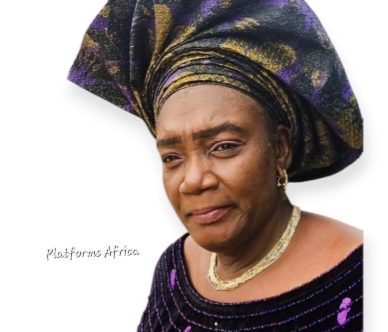Africa faces widespread use of substandard electrical cables due to a lack of regulation and the limited ability of many countries to enforce compliance with safety standards.
Research indicates that electrical cables are among the most commonly counterfeited products on the continent.
Cables imported from China are identified as the primary source of poor-quality products, with other Asian imports contributing to the majority of the remainder.
Global Alliance Appoints NIPR President as Member, Africa Regional Council
NCC Moves To Sanitize Tarrif Plans Regime, Targets 7 Plans Per Operator
Additionally, locally manufactured counterfeit cables have been reported in countries like Nigeria, Tanzania, and Ivory Coast, among others.
A survey by global energy management and automation company Schneider Electric reveals that counterfeiting of common electrical products, such as cables and breakers, is prevalent across Africa.
The five most counterfeited products, in order of prevalence, include cables, breakers, sockets, switches, and extension cords.
Never Pay DisCos To Replace Faulty Meters, Transformers, NERC Tells Customers
Obasanjo Not Ideal Leader To Emulate, Tinubu Fires Back At Ex-President
‘Fraud,’ Opposition Kicks As APC Wins All 20 LGs, 236 Councillorship Posts
The survey also highlights that major brands like ABB, Hager, General Electric, Schneider Electric, Legrand, and Siemens are facing the highest levels of intellectual property infringement on the continent.
According to Dr Andrew Dickson, Engineering Executive at CBi-electric, a leading South African company listed on the JSE in the industrial goods and services, low voltage, highlighted the alarming trend, noting that counterfeit electrical goods are often poorly made, using substandard materials that pose severe health and safety hazards. ‘Unfortunately, wherever there is demand, counterfeiters will find opportunities to profit,’ he warned. This includes solar power systems, which have seen a rise in popularity, particularly in South Africa. With the government pushing for cleaner energy, the demand for affordable solar components has exploded, but so too has the influx of uncertified and substandard solar panels.
Despite the serious risks, consumers are often drawn to the lower price tags of these counterfeit goods, unaware of the long-term consequences. Dr Dickson pointed out that many consumers focus on the immediate savings, ignoring the potential for costly malfunctions. ‘A R50 counterfeit circuit breaker may seem like a bargain compared to a R100 genuine one, but the risk of a malfunction far outweighs any short-term savings,’ he explained. ‘A defective product can result in property damage, personal injury, or even fatalities.’
‘Rumble In The Jungle,’ Tale of Ali Vs Foreman Cracker That ‘Brought Kinshasha On World Map’
One of the critical issues with counterfeit electrical products is the inferior materials used in their construction. While genuine products are made with high-quality, tested, and compliant materials that are non-flammable or self-extinguishing, counterfeiters cut corners, often using cheap, untested plastics that are highly flammable and toxic. In severe cases, these materials can cause deadly fires or release harmful fumes when exposed to heat.
Dr Dickson stressed that legitimate electrical products undergo rigorous testing to meet safety, environmental, and performance standards. This thorough process ensures they last longer and perform better, making them a better investment in the long run. ‘Compliant products are tested under harsh conditions, including salt spray and aging tests, and offer superior efficiency,’ he explained.
While African governments have introduced regulations to ensure the quality and safety of electrical products, the primary challenge lies in the widespread disregard for these laws by counterfeiters. The growing demand for cheap, non-compliant products is a problem not only among individual consumers but also businesses and government institutions.
Dr Dickson called on legitimate manufacturers, certification bodies, and distributors to take greater responsibility in educating consumers about the dangers of counterfeit products. ‘It’s vital that consumers understand that the lower price of counterfeit goods is not worth the potential risks to their lives and property,’ he urged. By promoting awareness of the importance of buying from reputable suppliers and certified contractors, stakeholders can help consumers make informed decisions.





